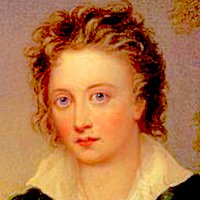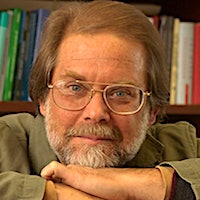

Tao Te Ching

Francis Bacon
1561 – 1626 CE
“Father of the scientific method,” Lord Chancellor of England, orator, jurist, and philosopher; Francis Bacon represents a huge step in the evolution of consciousness but not before indulging in a sybaritic lifestyle, being charged with 23 cases of corruption, being banned from Parliament and imprisoned in the Tower of London. In his ex-con life, he undermined the strength of religion, railed against tradition and authority, became “the most powerful and influential intellect of his time,” warned of the rich getting too rich as a cause of social disease and revolt, the likelihood of new inventions causing more harm than help, and championed the rise of reason and science that brought about our modern world.
Lineages
Epicureanism Humanism Renaissance Scientists
Eras
Chinese
Ming dynasty (1368 – 1644 CE)Unlisted Sources
Advancement of Learning, 1605
Essays (1625)
Essays, Civil and Moral 1625
Of Goodness and the Goodness of Nature
The New Organon, 1620
Unlisted SourceEssays, Civil and Moral 1625
Quotes by Francis Bacon (34 quotes)
“We have only this moment, sparkling like a star in our hand--and melting like a snowflake...”
Chapters:
35. The Power of Goodness
Comments: Click to comment
“Truth is the daughter of time, not of authority.”
Chapters:
38. Fruit Over Flowers
Comments: Click to comment
“Money is a great servant but a bad master.”
Chapters:
44. Fame and Fortune
Comments: Click to comment
“If we are to achieve things never before accomplished we must employ methods never before attempted.”
Chapters:
59. The Gardening of Spirit
Comments: Click to comment
“Begin with certainties and end in doubts; or begin with doubts and end in certainties.”
Chapters:
65. Simplicity: the Hidden Power of Goodness
Comments: Click to comment
“Man prefers to believe what he prefers to be true.”
Chapters:
71. Sick of Sickness
Comments: Click to comment
“I will never be an old man. To me old age is always 15 years older than I am.”
Chapters:
76. The Soft and Flexible
Comments: Click to comment
“Human knowledge is a mere ill-digested mass made up of credulity, accident, and childish notions.”
Comments: Click to comment
“Money is like mulch, not good except it be spread.”
Comments: Click to comment
“Human understanding is like a false mirror, which, receiving rays irregularly, distorts and discolors the nature of things by mingling its own nature with it.”
Comments: Click to comment
“Philosophers should diligently inquire for this is the way that reigns in men's morals, forms and subdues their minds.”
from Advancement of Learning, 1605
Comments: Click to comment
“Monuments, names, words, proverbs, traditions, fragments of stories, passages of books, and the like all help save us from the deluge of time.”
from Advancement of Learning, 1605
Comments: Click to comment
“To say that a blind custom of obedience should be a surer obligation than duty taught and understood is to affirm that a blind man my tread surer with a guide than a seeing man by a light.”
from Advancement of Learning, 1605
Comments: Click to comment
“It is due to Justice that man is a God to man not a wolf.”
from Advancement of Learning, 1605
Comments: Click to comment
“Be angry but sin not. Don't let the sun go down upon your anger.”
from Essays, Civil and Moral 1625
Comments: Click to comment
“Though neither miserable in pain nor courageous in battle, men die from the weariness of boredom, doing the same things over and over.”
from Unlisted SourceEssays, Civil and Moral 1625
Comments: Click to comment
“It is a strange desire to seek a Power that loses our liberty, a power over others that makes us lose power over ourselves. Those in high positions lose their freedom and become slaves to the state, to fame, and to business.”
from Of Goodness and the Goodness of Nature
Comments: Click to comment
“As the births of living creatures are at first ill-shapen, so are all Innovations... every medicine is an innovation and those who will not apply new remedies must expect new evils, for time is the greatest innovator.”
from Of Goodness and the Goodness of Nature
Comments: Click to comment
“Of great riches there is no real use, except in the distribution; the rest is but conceit... money is like muck, not good except it be spread.”
from Of Goodness and the Goodness of Nature
Comments: Click to comment
“Some books are best tasted, some swallowed, and a very few best if chewed and digested... read not to impress, to debate, to believe; but to contemplate and consider.”
from Of Goodness and the Goodness of Nature
Comments: Click to comment
“Superstition discounts reason and builds an absolute monarchy in our minds making wise men follow fools.”
from Of Goodness and the Goodness of Nature
Comments: Click to comment
“The old tend to object too much, consider too long, adventure too little, repent too soon, and content themselves with only a modicum of success.”
from Of Goodness and the Goodness of Nature
Comments: Click to comment
“We have been kept back from scientific progress by a kind of enchantment and reverence for antiquity, for the authority of those considered great in philosophy, and by general consent.”
from The New Organon, 1620
Comments: Click to comment
“The very contemplation of things as they are—without superstition, imposture, or confusion—is in itself more beneficial than all the fruits of technology and invention.”
from The New Organon, 1620
Comments: Click to comment
“Truth is as naked and open daylight that does not show the masques, and mummeries, and triumphs of the world, half so stately and daintily as candle-lights. . . A mixture of a lie doth ever add pleasure”
Comments: Click to comment
“Those who have wife and children have given hostages to fortune; for they are impediments to great enterprises, either of virtue or mischief.”
from Essays (1625)
Comments: Click to comment
“The chastest poet and royalest that to the memory of man is known.
”
Comments: Click to comment
“There is no excellent beauty that has not some strangeness in the proportion.”
Comments: Click to comment
“Revenge is a kind of wild justice, which the more man's nature runs to, the more ought law to seed it out.”
Comments: Click to comment
“Hope is a good breakfast, but it is a bad supper.”
Comments: Click to comment
“No one is angry who doesn't feel themselves hurt.”
from Essays (1625)
Comments: Click to comment
“There was an Epicurean vaunted, that divers of other sects of philosophers did after turn Epicureans, but there was never any Epicurean that turned to any other sect. Whereupon a philosopher that was of another sect, said; The reason was plain, for that cocks may be made capons, but capons could never be made cocks.”
Comments: Click to comment
Quotes about Francis Bacon (3 quotes)

“Francis Bacon... who mapped out the unconquered fields of research, pointed a hundred sciences to their tasks, foretold their unbelievable victories, proclaimed the mission of thought as the resolute extension of the mastery of man over the conditions of his life, and turned the gaze of science to the self-revealing face of nature, who sent out a challenge to all the lovers and servants of truth everywhere.”
Comments: Click to comment

“If Bacon's spirit had not leapt
Like lightning out of darkness; he compelled
The Proteus shape of Nature's as it slept”
Comments: Click to comment

“Francis Bacon kept the famine imagery but turned it to rather different ends. He described nature as a 'common harlot' who needed to be 'tortured' in order to make her yield her secrets.”
Comments: Click to comment
Comments (0)